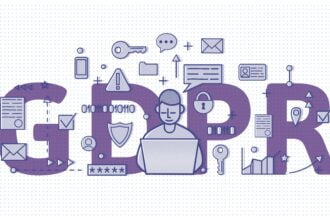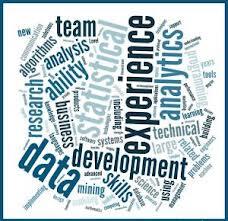It’s been almost two years since the COVID-19 pandemic started, and now we have enough information to assume that most enterprises weren’t prepared for the crisis. Although teams had vast amounts of data and powerful analytic tools at their fingertips, the pandemic still caught most organizations off guard. As a result, most enterprise executives had to cut their plans and initiatives. According to a Google-commissioned IDG survey, 55% of respondents have postponed or canceled at least one technology project.
One of the main reasons for such a disruption may be the obsolescence of many traditional data management models; that’s why they have failed to predict the crisis and its consequences. Moreover, we can see that only those teams who decided to transform their data analytics models were able to make rapid and intelligent business decisions and, consequently, successfully adapt to this new business reality. According to Cognizant, nearly 70% of teams that made major or significant changes to their analytical models now make more accurate predictions, compared to 45% who preferred to leave things as they were.
At Itransition, we believe that the adoption of business intelligence (BI) can enable enterprises to transform and continually adapt to the ever-changing market conditions. In this article, we’ll take a closer look at why companies should seek new approaches to data analytics. We’ll also show how exactly enterprises can implement BI, either by their own efforts or via BI services, to pass through the crisis with minimal negative impact on their operations.
Why legacy approaches to data analysis no longer work
To begin with, we should understand why exactly the legacy data analytics approaches may be considered ineffective. The thing is, previously data analytics was based on models that perpetually extended into the future; unfortunately, most of these models have become obsolete in today’s circumstances.
Before the pandemic, enterprise managers lived in the illusion that all future events could be predicted. Based on this assumption, specialists relied on false predictive data models that could only reflect a simplified picture of the possible future. In this paradigm, any minor deviations in data (which, in fact, could predict something) could simply be ignored or perceived as exceptions.
Thus, data analysts began to tailor the data to their usual models of reality instead of adequately assessing change and its impact. Finally, this has led to a disconnection between data sets and analytics itself, leaving many enterprises unarmed in the face of a real crisis.
So, can enterprise managers do something to avoid falling into this trap again in the future? Yes, they can implement BI to enable rapid, real-time data analytics; thus, teams become able to experiment and continuously adapt to market changes caused by the pandemic.
Implementing BI to overcome the crisis
Enterprise managers looking to leverage or improve their existing BI solutions should conduct an in-depth assessment of existing data environments and draw up a detailed strategy to improve the effectiveness of corporate analytics models. To help our clients speed up this process, our company has developed an emergency BI package for enterprises that are passing through social and economic disruptions (just like the present coronavirus crisis).
This approach, which we call reactive data analytics, allows teams to quickly test and validate data-based hypotheses via the HADI (Hypothesis-Action-Data-Insight) cycle. You can use our approach or develop a similar one to swiftly transform your data processing strategy, define new data points and data gathering routes, and continuously adapt your analytics to changing market conditions.
• Hypothesis definition
To start with, a team needs to formulate hypotheses based on the goals and business requirements.
• Insight analytics
At this stage, a team needs to analyze the gathered data and data management processes to create an appropriate environment for testing their hypotheses.
• Action points
After analyzing the testing results, a team needs to determine a set of specific actions that have to be taken to obtain the data needed for achieving the team’s business goals.
• A strategy-driven MVP
Based on the previous steps, a team comes up with a new data analytics strategy and develops an MVP to achieve visible and measurable results.
Summary
The pandemic has highlighted that the majority of traditional data analytics models have become obsolete, and enterprises can no longer rely on them to predict and manage crises. To be able to adapt to constantly changing market conditions throughout the coronavirus crisis, teams should implement or improve their existing BI solutions. In particular, enterprise managers can utilize the HADI concept to implement reactive analytics; thus, they can analyze data in real time and make more rapid and reasonable business decisions.









